Is Your Cat Acting Strange? How To Read The Warning Signs
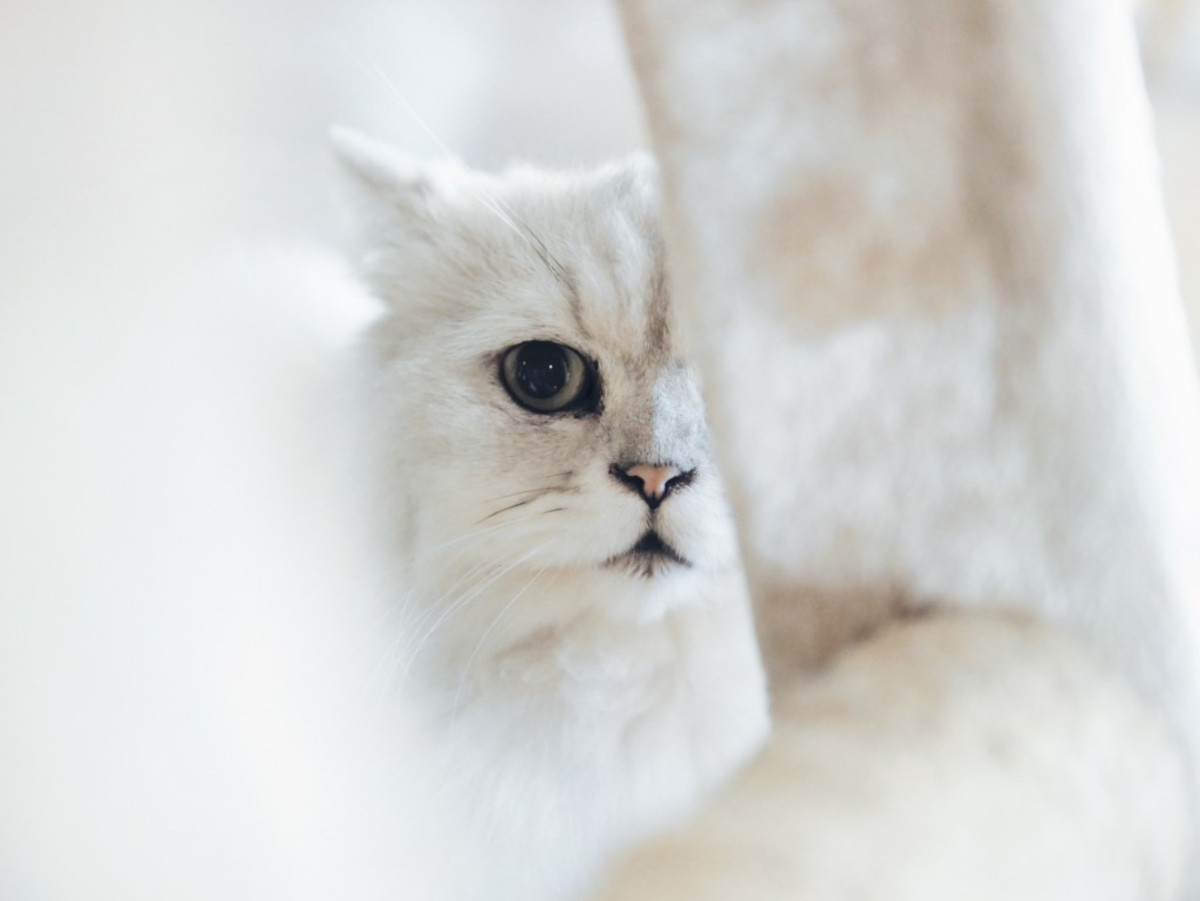
Is Your Cat Acting Strange? How To Read The Warning Signs. Cats are very clever at keeping secrets when they’re unwell. You may not see them for hours during the day and this is quite normal. But when they start hiding in quiet, dark spaces it may be that they’re trying to manage pain and discomfort. It’s an instinct that would keep them safe from predators in the wild. Is your cat acting strange? Here’s how to read the warning signs…
Signs of a Sick Cat
My cat is acting weird is probably your first thought so you need to find out why. Look out for:
Increased drinking and eating
This can be an early sign of diabetes. And hyperthyroidism when coupled with an increased appetite. This may also be due to inflammatory bowel disease which is another common reason for your cat eating much more.
Reduced eating
A drastic loss of appetite should trigger alarm bells. This may be a response to recent vaccinations against leukaemia and cat flu, or due to environmental changes. As the liver will start to shut down quickly when fat is consumed from the body this can be a rather serious condition, and needs a rapid response from your vet.
Changes in the litter tray
Litter box habits may change if your cat is experiencing problems with painful hips and knees.
Increased urination can indicate diabetes, and pain passing water may be caused by a urinary tract disease. Blood in the urine can indicate genetic issues or a sign of cancer.
Constipation may be the reason for the inability to defecate due to a change in diet or a blockage. Diarrhoea implies an allergic reaction or another disease.
These issues can quickly become life-threatening so see your vet urgently.
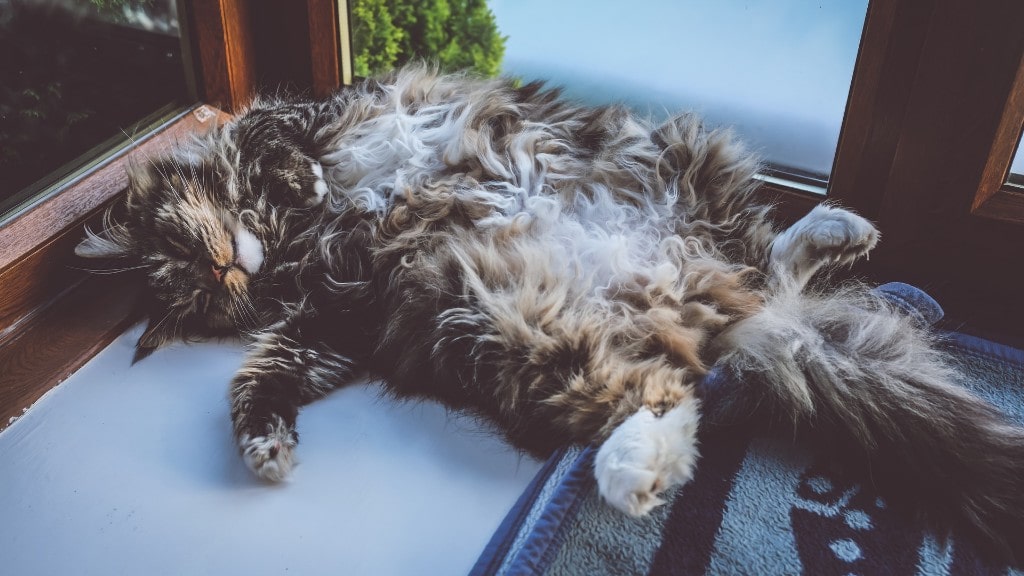
Excessive fur shedding
When you cat loses fur in abundance this could be an indication of a glandular disorder known as hypothyroidism, or allergies. These could be from food or fleas and may require changes in diet and flea treatment. Other reasons for coat changes can be worms, ulcers or infections.
Behavioural differences
A change in behaviour implies something’s not quite right. The stress of moving home, a new baby, or being left alone for long periods of time can all trigger antisocial behaviour. If those things have been ruled out you may need to arrange a visit to the vet, especially if your cat is growling or biting when touched.
Lethargy
If your cat is drowsy and sleeping excessively this may be a sign of anaemia, an injury, or other system disorder. Cancer could also be a possibility. Older cats will need more sleep, but unusual sleep patterns need investigating.
Vomiting
If your cat is being sick repetitively it’s probably more than a case of hairballs. When foreign bodies get stuck in the throat they can cause a serious blockage in the intestines, and obstruct the oesophagus. Kidney disease is another factor that can cause excessive vomiting so a trip to the vets will be in order.
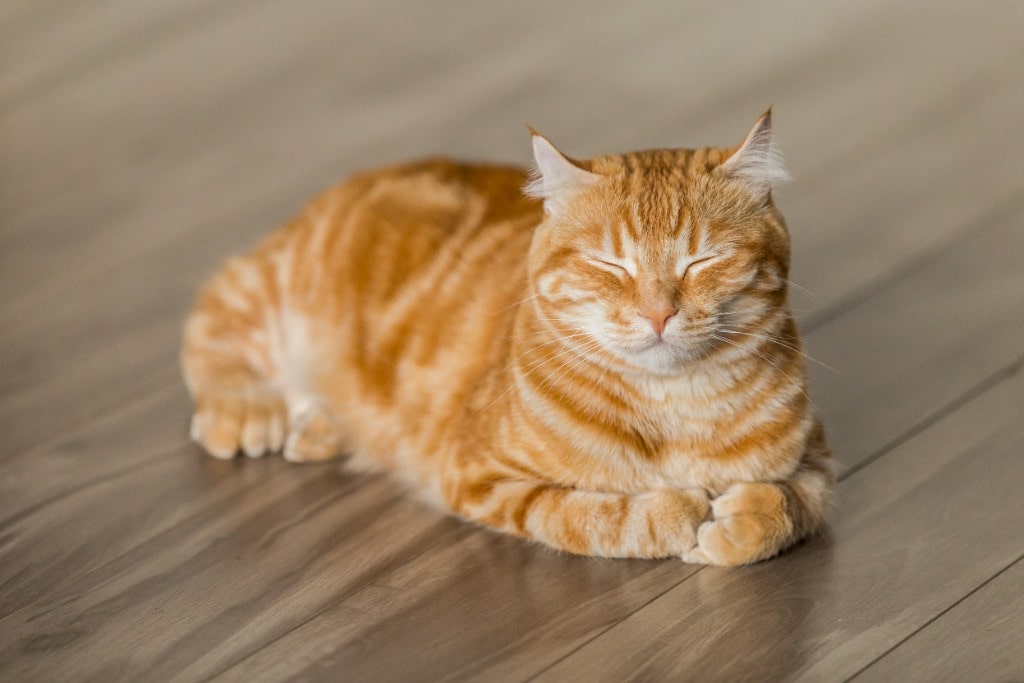
Weight loss or gain
Apart from stress, many other health issues will cause weight gain. Your vet needs to rule out overactive thyroid, cancer, diabetes, viruses and gastrointestinal problems.
Swollen gums
You can notice gum disease from swollen and red gums. If you brush your cats’ teeth regularly you’ll notice any change. Bad breath is indicative of dental disease and sweet-smelling breath could be a sign of diabetes. Get advice for appropriate treatment.
Discharge and breathing issues
Eye and nose discharge can be accompanied by shortness of breath – a sign of a respiratory illness. A change in breathing and coughing can mean asthma, tumours, and even dehydration.
Body growths
Possible causes of external lumps can be related to infections, tumours, and cancer. If you find any unusual growths you should contact your vet immediately.
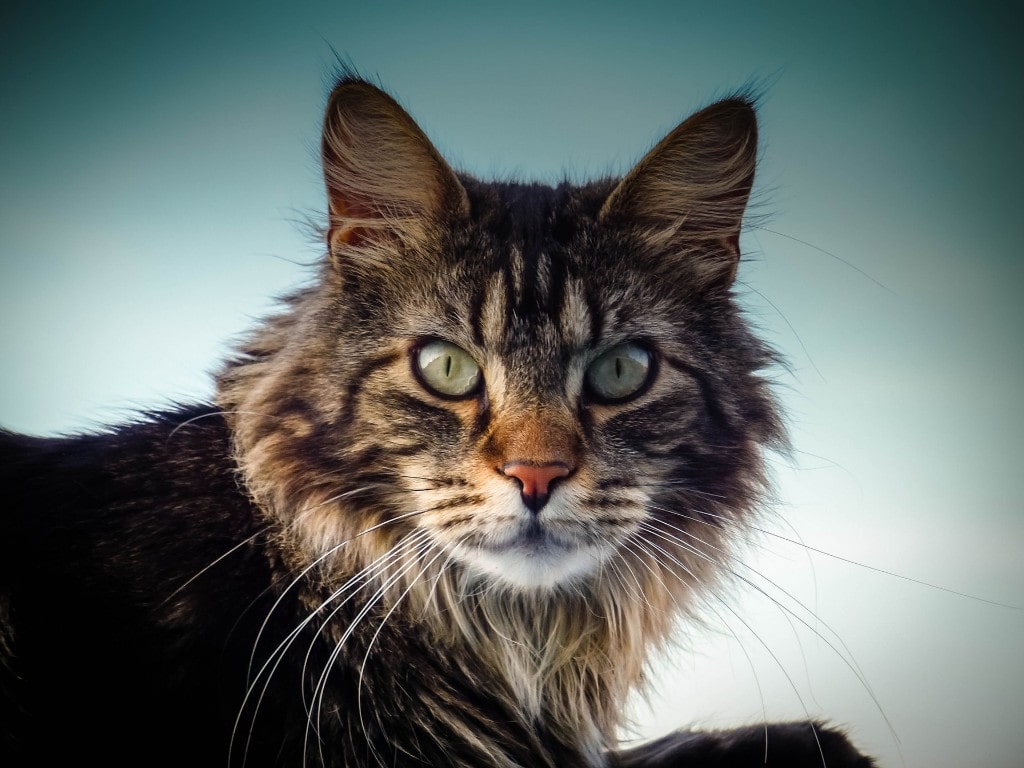
No grooming or washing
It’s usual for elderly cats to need extra help with grooming as conditions such as arthritis make reaching some areas difficult. But it’s not normal for your cat to look scruffy and unkempt. If your cat isn’t taking care with washing you need to see your vet.
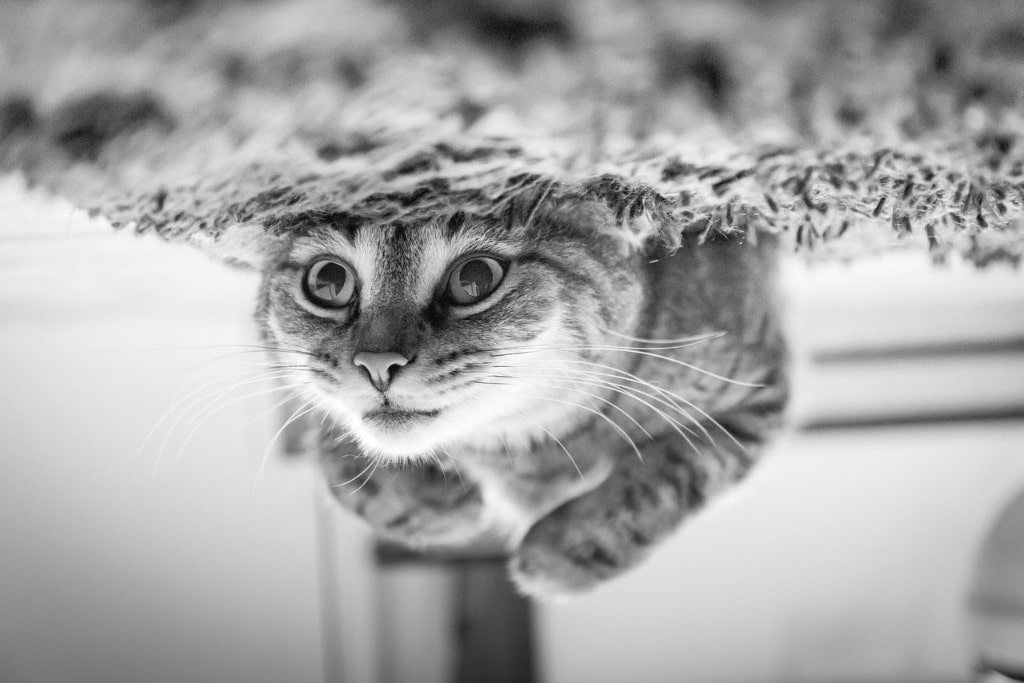
Disorientation
This sign of a cat acting weird is relatively normal in an elderly cat. It’s often the first sign of a neurological disorder, particularly if accompanied by howling, nit using the litter tray, and bumping into things.
Unusual body positions
When your cat is suffering from acute pain, it will adopt an abnormal sitting position, tucking its feet underneath and keeping its nose to the floor. Walking with very short strides with a hunched back is another sure sign of pain.
Cat Euthanasia at Home
When there isn’t a medical intervention that’ll help you may need to consider a gentle end-of-life solution. Putting a cat to sleep will be done with dignity and respect when you ask for help from your local home visit vets.
Is Your Cat Acting Strange? How To Read The Warning Signs
Tags: cat ageing, pet wellbeingCloud 9
To ensure accuracy, a professional vet has reviewed and verified the information presented in this article. It is important to note that when it comes to making decisions about euthanasia for your pet, there are no easy answers. It is always recommended to seek advice from your own veterinarian before making any decision.



